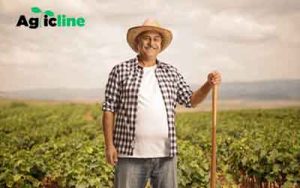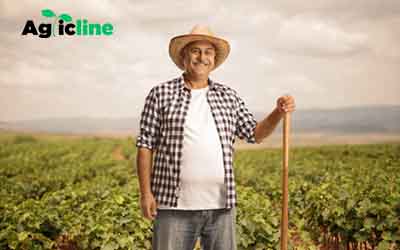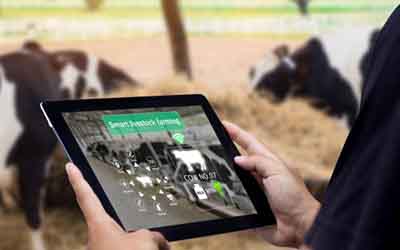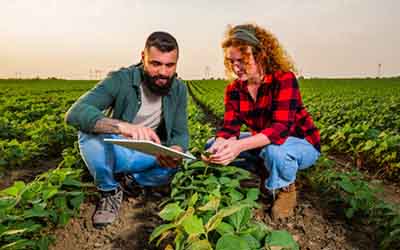In recent years, the allure of becoming a farmer has seen a remarkable resurgence among individuals seeking not just a job, but a lifestyle that is deeply connected to the earth and the cycles of nature.
This interest is not limited to those with agricultural backgrounds; a growing number of aspirants with no experience in farming are drawn to this sector, motivated by the desire to contribute to food security, live a life closer to nature, and participate in the movement towards sustainable living.
The importance of sustainable agriculture cannot be overstated in today’s world, where environmental concerns and the need for food systems that can sustain future generations are more pressing than ever.
Sustainable agriculture practices aim to produce food in ways that protect the environment, expand the Earth’s natural resource base, and maintain and improve soil fertility.
Based on a philosophy of minimizing harm to the environment and working in harmony with the existing ecosystem, sustainable farming is crucial for creating a resilient food system.
Types of Farming
· Crop Farming
· Livestock Farming
· Organic Farming
· Sustainable and Regenerative Farming
Crop Farming
This involves cultivating plants for food, fiber, biofuel, and other uses. Crop farming can range from growing fruits and vegetables for local markets to large-scale grain and oilseed production for global supply chains.
Livestock Farming
This type of farming focuses on raising animals for meat, dairy, wool, or other products. It requires knowledge of animal health, breeding practices, and pasture management.
Organic Farming
Emphasizing natural substances and processes, organic farming avoids synthetic pesticides and fertilizers to produce food with minimal environmental impact. It requires strict adherence to organic certification standards.
Sustainable and Regenerative Farming
These approaches go beyond traditional practices to improve soil health, conserve water, reduce chemical use, and enhance biodiversity.
They aim to produce food while restoring the health of the ecosystem.
The Role of Education and Research in Farming
While hands-on experience is invaluable, a theoretical understanding of agricultural principles is equally important.
Educational resources, ranging from online courses and agricultural extension programs to university degrees in agricultural sciences, provide a solid foundation in the science and economics of farming.
Research, whether through reading agricultural journals, attending workshops, or participating in local farming groups, keeps aspiring farmers abreast of the latest innovations, techniques, and sustainability practices.
Navigating the Initial Steps
The journey to becoming a farmer begins with self-education and immersion in the farming community.
Volunteering on farms, participating in internships, or joining community-supported agriculture (CSA) programs can offer practical experience and insights into the realities of farming life.
These experiences not only build essential skills but also help forge connections with seasoned farmers who can offer guidance, mentorship, and support.
How to Gain Practical Farming Experience
- Local Farms
Many small-scale and organic farms welcome volunteers, providing an excellent opportunity for beginners to learn about farming practices first-hand.
This can include tasks like planting, harvesting, weeding, and caring for livestock.
- Community Gardens
Participating in community gardens offers a chance to learn about vegetable gardening and small-scale crop management while contributing to local food security.
- Agricultural Nonprofits
Organizations focused on food sovereignty, sustainable agriculture, and environmental conservation often have volunteer programs that can provide insights into the broader impacts of farming on society and the environment.
- Structured Learning
Internships and apprenticeships on farms offer more structured learning opportunities compared to volunteering.
These positions can sometimes offer stipends and often include educational components, such as workshops or courses, alongside daily farming duties.
- Specialized Farms
Seeking internships in specialized areas of interest, such as organic crop production, permaculture, or animal husbandry, allows aspiring farmers to develop specific skills and knowledge that align with their farming goals.
- Agricultural Extension Programs
Many universities and colleges offer extension programs that provide training and resources to new farmers.
These programs often include practical workshops, field days, and access to agricultural experts.
- Young Farmer Programs
Organizations and initiatives aimed at supporting young and beginning farmers offer courses, mentorship, and networking opportunities to help new entrants navigate the early stages of their farming career.
- Farming Cooperatives
Joining a farming cooperative can provide access to shared resources, knowledge exchange, and a community of farmers facing similar challenges and opportunities.
- Agricultural Conferences and Workshops
Attending events focused on agriculture can expand one’s knowledge, introduce innovative farming techniques, and facilitate networking with other farmers and agricultural professionals.
Acquiring Land and Resources
One of the most significant steps in becoming a farmer is acquiring the land and resources necessary for farming.
· Leasing Land
· Purchasing Land
· Land Link Programs
Leasing Land
Leasing is a viable option for new farmers without the capital to purchase land outright.
It reduces upfront costs and can provide an opportunity to gain experience and establish a farming operation before committing to a purchase.
Purchasing Land
Buying land is a significant investment but offers long-term security and the freedom to develop the property according to one’s vision.
Financing options, such as agricultural loans or grants, can make purchase feasible for new farmers.
Land Link Programs
Some organizations and states offer land link programs that connect retiring farmers with new farmers looking for land.
These programs can offer mentorship opportunities and facilitate transitions that benefit both parties.
Considerations for Selecting the Right Location
- Soil Quality: The fertility and composition of the soil are crucial for crop production. Soil tests can provide valuable information about the land’s suitability for various types of crops.
- Water Availability: Access to reliable water sources is essential for irrigation and livestock. Understanding local water rights and availability is a critical factor in selecting land.
- Climate and Growing Season: The local climate determines what crops can be grown and when. Selecting a location that supports your farming goals is important for success.
- Proximity to Markets: The distance to local markets, whether for selling produce directly to consumers or to retailers, can significantly impact profitability and operational efficiency.
Developing a Farm Business Plan
Creating a robust farm business plan is a crucial step for aspiring farmers, particularly those entering the field with no prior experience.
A well-thought-out business plan not only helps in securing funding and resources but also serves as a roadmap for managing and growing your farm business.
Importance of a Solid Business Plan
· Vision and Goals
Clearly defining your farming goals and vision for the future helps in strategizing how to achieve them. This includes short-term objectives and long-term aspirations for your farm.
· Risk Management
A business plan helps identify potential risks and outlines strategies to mitigate them, ensuring the sustainability of your farming operation.
Key Components of a Farm Business Plan
- Executive Summary
- Market Analysis
- Farm Operations Plan
- Marketing and Sales Strategy
- Financial Plan
- Management Structure
Marketing Your Farm Products
Successfully marketing your farm products is essential for turning a farming operation into a profitable business.
For new farmers, especially those without prior experience, developing an effective marketing strategy can seem daunting.
- Identify Your Target Market
Understanding who your customers are and what they value is the first step in marketing your products.
Whether your target market is local consumers interested in organic produce, restaurants looking for high-quality ingredients, or online shoppers, tailoring your marketing efforts to your audience is key.
- Develop a Unique Selling Proposition (USP)
Differentiate your farm products from those of competitors by identifying what makes your products unique.
This could be anything from organic certification, heirloom varieties, farm-to-table freshness, or sustainable farming practices.
- Community Engagement
Participating in local events, farmers markets, and community-supported agriculture (CSA) programs can help build a loyal customer base and increase visibility for your farm.
- Partnerships with Local Businesses
Establishing relationships with local restaurants, grocery stores, and food cooperatives can open up new sales channels.
Providing samples and sharing the story behind your farm can create interest and demand for your products.
The Importance of Branding and Online Presence
- Branding
Developing a strong brand identity, including a memorable name, logo, and packaging, can make your products stand out in the market. Your brand should reflect your farm’s values and the quality of your products.
- Online Marketing
Utilizing digital marketing tools such as a farm website, social media, email newsletters, and online marketplaces can significantly expand your reach.
High-quality photos, engaging stories about your farm, and updates on available products can keep your audience engaged and informed.
- Direct Sales
Selling directly to consumers through farmers markets, on-farm stores, or online sales offers the highest profit margins and direct feedback from customers.
- Wholesale
Selling in bulk to restaurants, schools, grocery stores, or food processors can provide steady sales volumes but generally at lower profit margins.
Building strong relationships and reliable delivery are key to success in wholesale.

My final thought on How to become a farmer with no experience
Farming is not just a career; it’s a lifestyle that connects individuals with the land, their community, and the global ecosystem.
The path to becoming a successful farmer involves navigating uncertainties and embracing the complexities of modern agriculture while holding onto the timeless values of stewardship and sustainability.
It’s a path that offers profound rewards: the satisfaction of nurturing growth, contributing to food security, and making a positive impact on the environment.
To aspiring farmers starting this journey, remember that every great farmer began as a novice. The agricultural community is supportive and rich with knowledge and resources.
Start small, be patient, and seek out opportunities for learning and growth. Embrace the challenges and celebrate the victories, no matter how small they may seem.
Recommendations
8 Difference between gardening and farming
Best farming technology in India



